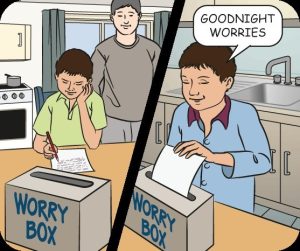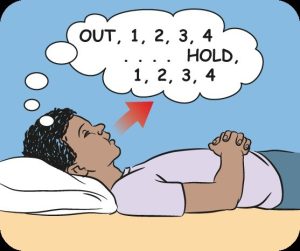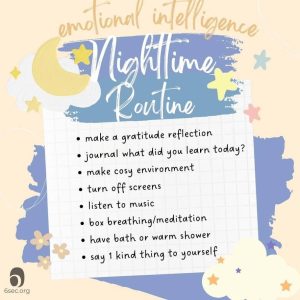Why Sleep is so Important for our Young People’s Mental Health
A sleepless night can have a ripple effect, impacting various aspects of a young person’s life. Here are some of the consequences and their flow-on effects:
Immediate Effects:
Mood Changes: Sleep-deprived children may be irritable, moody, or overly emotional.
Cognitive Impairment: Lack of sleep can lead to difficulty concentrating, poor decision-making, and reduced problem-solving skills.
Behavioural Issues: Increased impulsivity or hyperactivity can occur, making it harder for children to control their actions.
Short-Term Effects:
Academic Performance: Reduced focus and retention can affect school performance and learning.
Social Interactions: Mood swings and irritability can strain friendships and lead to conflicts with peers.
Physical Health: Fatigue may cause a decrease in physical activity, leading to a lack of energy for play or sports.
Long-term Effects:
Chronic Sleep Issues: Ongoing sleep problems can lead to a cycle of insomnia and anxiety about sleep.
Emotional Health: Long-term sleep deprivation can increase the risk of anxiety and depression.
Developmental Delays: Inconsistent sleep can impact growth, emotional regulation and overall development.
Strategies to Mitigate Effects:
- Consistent Sleep Schedule: Encourage regular sleep and wake times.
- Mindfulness Practices: Introduce relaxation techniques to help manage stress and anxiety.
- Communication: Talk about any fears or worries that might be affecting sleep, providing reassurance and support.
- Routines: Turn computers, tablets and TV off an hour before bedtime.
- Environment: Have a quiet and dimly lit place to sleep. Get plenty of natural light during the day, especially in the morning.
- Healthy habits: Avoid caffeine in tea, coffee, sports drinks and chocolate, especially in the late afternoon and evening.
- Encourage Physical Activity: Regular exercise can improve sleep quality but should be timed appropriately (not too close to bedtime).

Try a worry box. Before bedtime, your child can draw or write down their worries. At bedtime, worries go into the box. Talk about worries the next day.

Ask your child to breathe out for four counts. Ask your child to hold the breath out for four counts. Repeat up to four times. Tell your child that deep breathing gets easier with daily practice.
Recommended Sleep Duration (this is only a guide and can vary for each child):
- Infants (4–12 months): 12–16 hours
- Toddlers (1–2 years): 11–14 hours
- Preschoolers (3–5 years): 10–13 hours
- School-age children (6–13 years): 9–11 hours
- Teens (14–17 years): 8–10 hours. Teens often start to go to bed later and wake later which can cause tension in the household when trying to get everyone out the door to school and work commitments.

Please seek support from your GP if you are struggling with your child/teen around sleep and have noticed changes in their behaviour or routine.
Other free online support and sleep support apps are available:
https://headspace.org.au/headspace-centres/narre-warren/
https://www.blackdoginstitute.org.au/resources-support/digital-tools-apps/sleep-ninja/
https://raisingchildren.net.au/school-age/sleep/better-sleep/sleep-better-tips
Mandy Barr
Counsellor

 569
569













